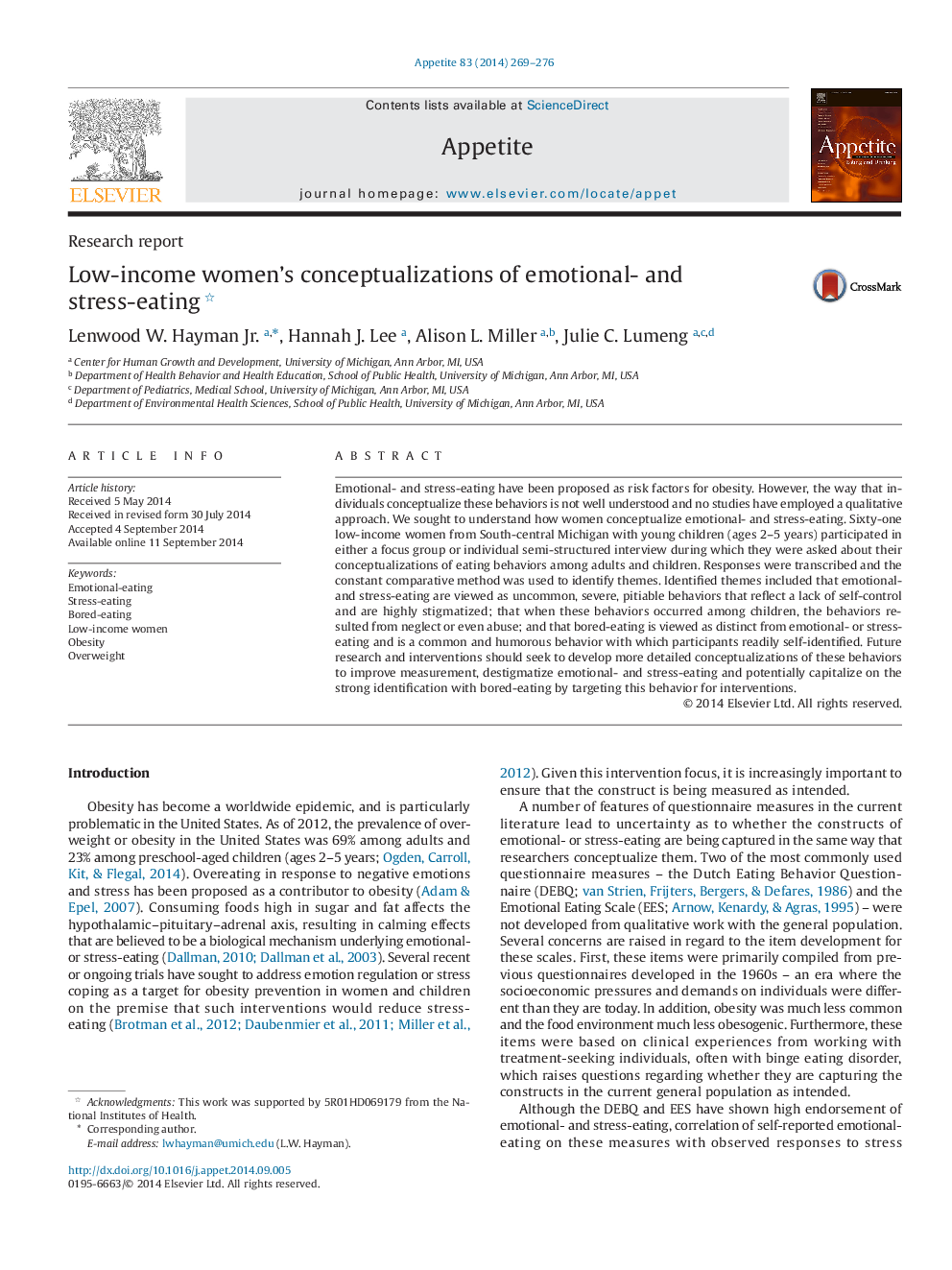| Article ID | Journal | Published Year | Pages | File Type |
|---|---|---|---|---|
| 7309808 | Appetite | 2014 | 8 Pages |
Abstract
Emotional- and stress-eating have been proposed as risk factors for obesity. However, the way that individuals conceptualize these behaviors is not well understood and no studies have employed a qualitative approach. We sought to understand how women conceptualize emotional- and stress-eating. Sixty-one low-income women from South-central Michigan with young children (ages 2-5 years) participated in either a focus group or individual semi-structured interview during which they were asked about their conceptualizations of eating behaviors among adults and children. Responses were transcribed and the constant comparative method was used to identify themes. Identified themes included that emotional- and stress-eating are viewed as uncommon, severe, pitiable behaviors that reflect a lack of self-control and are highly stigmatized; that when these behaviors occurred among children, the behaviors resulted from neglect or even abuse; and that bored-eating is viewed as distinct from emotional- or stress-eating and is a common and humorous behavior with which participants readily self-identified. Future research and interventions should seek to develop more detailed conceptualizations of these behaviors to improve measurement, destigmatize emotional- and stress-eating and potentially capitalize on the strong identification with bored-eating by targeting this behavior for interventions.
Keywords
Related Topics
Life Sciences
Agricultural and Biological Sciences
Food Science
Authors
Lenwood W. Jr., Hannah J. Lee, Alison L. Miller, Julie C. Lumeng,
